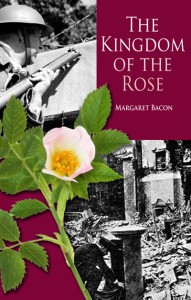Description
This is the story of the Twentieth Century, told through the life of one woman, Eglantine Thorpe, who first appeared as Nell’s aunt in Snow in Winter. Born in 1896, she was a great disappointment to her mother who predicted she would never make a good marriage as she was plain and – what was even worse – she was clever.
She belonged to that generation of women who were deprived of husbands and lovers by the First World War in which half a million young men were killed. These women were the maiden aunts of the century, expected to help to care for nieces and nephews and to look after their elderly parents until they died.
There were some pioneers – and she was one of them – who rejected these assumptions and fought to be allowed to study, enter the professions and carve out a career for themselves, despite the widely-held belief that since women were more emotional than men, their brains were unsuited to too much thought and might be damaged by it.
She succeeded, despite fierce parental opposition, in getting to university, only to give up two years later when, one of her brothers having been killed in the war, she felt compelled to train as a VAD and went to France to nurse the wounded and dying. She returned to university after the war, got a good degree and became a teacher in a very poor area. Realising that the families of her pupils were held back by poverty caused by having too many children, she got involved in the birth control movement, set up to help working class women, who were likely to have fifteen children and as many miscarriages. Middle class women, who could pay for birth control, by now rarely had more than three or four children. The clinic where she helped was threatened with closure by politicians, preached against by the clergy and denounced by several doctors. Her involvement in the movement, widely condemned as likely to deprave the working classes, lost her the headship for which she applied.
Later she did become the head of a very successful school, only to find that if she married the man whom she had come to love, she would have to give up her job, for women had to choose between career and marriage. The Second World War changed all that, as women were called upon to do all the jobs hitherto regarded as strictly for men. When she died in the late 1970s, Britain was a very different country from the one into which she had been born.
Reviews
Eglantine Thorpe’s mother predicted that no one would love her – by which she meant that her plain, bluestocking daughter would not make a good marriage. In that, at least, Mrs Thorpe was proved right. Eglantine’s first love dies in the Great War. Afterwards, she resigns herself to life as an unmarried schoolteacher. Unsuccessful in her first application to become a headmistress, she nevertheless attracts the attention of a school governor, Harry Hawthorne. He likes her unconventional looks and mind enough to propose to her, but Eglantine realises that if she marries him, she will be called upon to sacrifice the very independence and individuality he admires in her.
On her own, she weathers the storms ahead: the Second World War with its civilian bombing and evacuation; the death of old friends and of Patrick, her nephew, estranged from her after an unwise marriage. But Patrick leaves a child, Nell, as bright, fearless and outspoken as the young Eglantine was. She becomes the daughter that Eglantine has never had.
The Kingdon of the Rose is a portrait of a remarkable woman whose struggles, sacrifices and triumphs mirror the spirit of the generations she lives through.
Yorkshire Post
